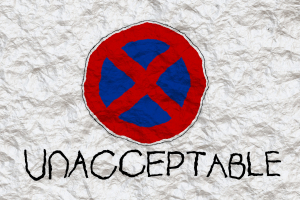
New Delhi: The Election Commission of India (ECI) today declared 253 Registered Unrecognized Political Parties (RUPPs) as inactive and barred them from availing of benefits of the Symbol Order, 1968. The ECI further delisted 86 non-existent RUPPs and declared an additional 253 as ‘Inactive RUPPs’.
This action against 339 non-compliant RUPPs takes the tally to 537 defaulting RUPPs since May 25, 2022. It may be recalled that ECI had delisted 87 RUPPs and 111 RUPPs vide orders dated May 25, 2022, and June 20, 2022, thus totalling the number of delisted RUPPs to 284.
As per statutory requirements under section 29A of the Representation of the People Act, every political party has to communicate any change in its name, head office, office bearers, address, PAN to the Commission without delay.
The ECI stated that 86 RUPPs were found to be non-existent either after a physical verification carried out by the respective Chief Electoral Officers of concerned States/Union Territories or based on the report of undelivered letters/notices from Postal Authority sent to the registered address of concerned RUPP.
This decision against 253 non-compliant RUPPs has been taken based on reports received from Chief Electoral Officers of seven states namely Bihar, Delhi, Karnataka, Maharashtra, Tamil Nadu, Telangana and Uttar Pradesh. These 253 RUPPs were declared inactive, as they did not respond to the letter/notice delivered to them and did not contest a single election either to the General Assembly of a State or the Parliament Election 2014 and 2019. These RUPPs failed to comply with statutory requirements for more than 16 compliance steps since 2015 and continued to default.
The ECI also noted that of the above 253 parties, 66 RUPPs actually applied for a common symbol as per para 10B of the Symbol’s Order 1968 and did not contest the respective elections. It is pertinent to note that privilege of a common symbol is given to RUPP based upon an undertaking for putting up at least 5 per cent of total candidates with regard to said legislative assembly election of a State. Possibility of such parties occupying the available pre-election political space by taking benefits of admissible entitlements without contesting elections cannot be ruled out. This also tends to crowd out the political parties actually contesting elections and also creates a confusing situation for the voters.
The Commission noted that the primary purpose of registration of political parties is contained in Section 29A which lists out privileges and advantages which accrue to an association once it gets registered as a political party and all such advantages and privileges are directly relatable to the said participation in the electoral processes. Accordingly, the 13 (ii) (e) guidelines for registration of political parties issued by the Commission for the condition of registration reads as follows:
“Declares that party must contest an election conducted by the Election Commission within five years of its registration and thereafter should continue to contest. (If the Party does not contest elections continuously for six years, the Party shall be taken off the list of registered parties).”
The Commission claimed it is cognizant that compliances of the birth conditions, which are a combination of mandated and self-acknowledged provisions, are sine qua non for maintaining financial discipline, propriety, public accountability, and transparency. The compliances work as the building blocks of a transparency mechanism for informing the voters of the affairs of the political parties necessary for making informed choices. In the absence of required compliances, the electorate and the Election Commission get blindsided. Further all these stated regulatory requirements have a direct bearing on the Commission’s constitutional mandate of conducting free, fair and transparent elections.
– global bihari bureau




